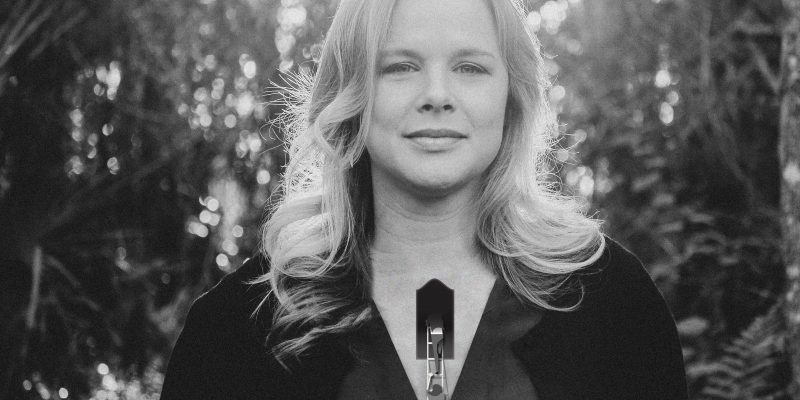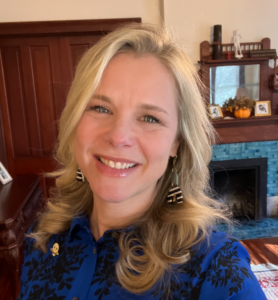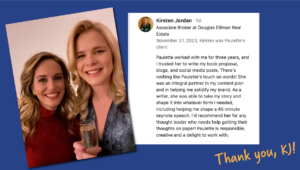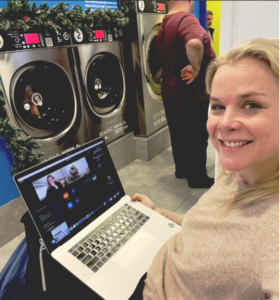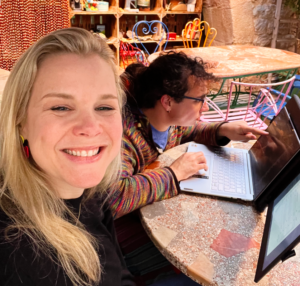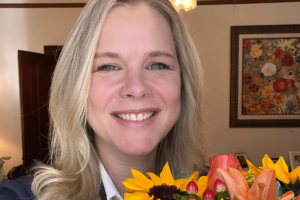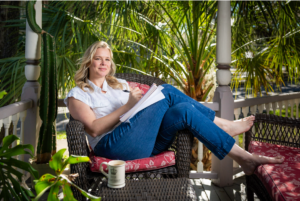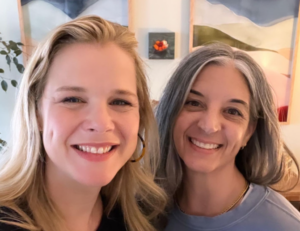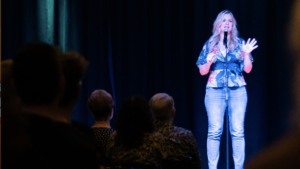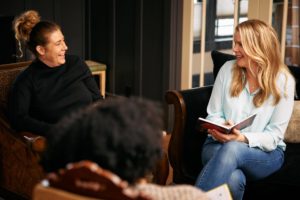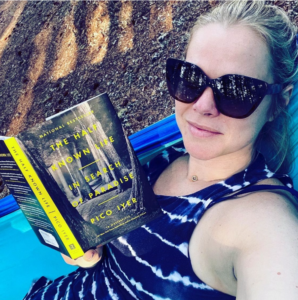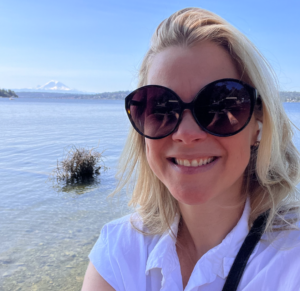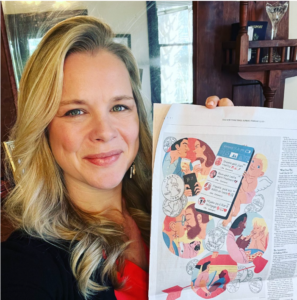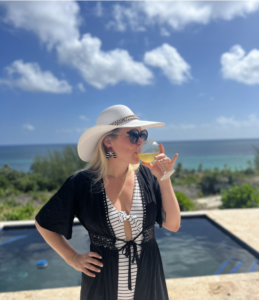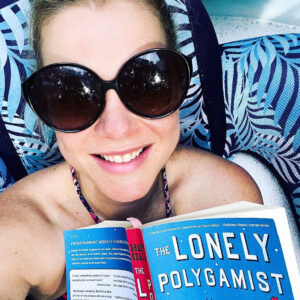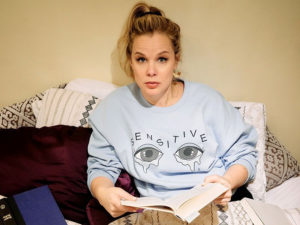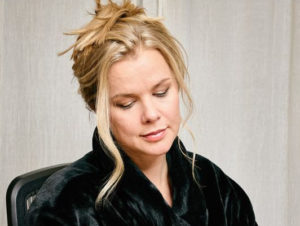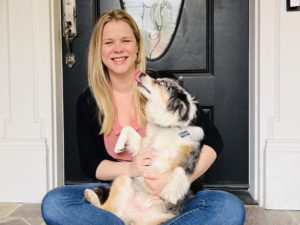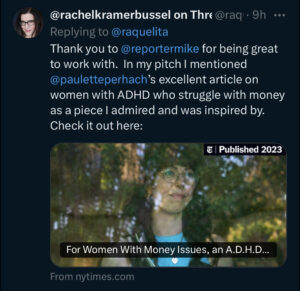Maybe I love the personal essay so much because it’s a fancier, more thoughtful extension of the diary entries I’ve been writing since elementary school. When my dog ate one of the eggs my friends and I found in the woods and were trying to hatch, I wrote a poem about it. God help us, I think I rhymed “upset” and “pet.” But I just remember finishing the page, looking at it, and realizing I felt better after netting the swirling words in my head and pinning them to a page.
In my 20s, I was a reporter, thinking I’d make my career on facts and not feelings, when, on a wild trip from Florida to the Sequoias in California to a music festival in Tennessee and back, I read my friend’s copy of The Bitch in the House, a book that simultaneously helped me understand my life and changed my life. Them bitches got real uncomfortable, writing about the realities of wifehood and motherhood. Getting so angry at children that you want them to be scared. Sleeping with married me. I didn’t know people wrote about these things. Personal essays open the attic door where most people hide their dusty, locked memories.
I’ve since pointed my stories at the rocks of shame laying in my chest and blasted them away with each admission. My family’s bankruptcy, body issues, being a former hot mess, having to move into a tiny apartment to stay in Seattle. My favorite essay I’ve written was the one where I threw down the actual digits of the money I lost in the recession, money I’d inherited from my dad’s death. So yeah, ouch.
But hey, I’ve also written fun essays, about celebrity sighting lust, dancing in Carnivale in a push-up bra, and deciding to become an aunt.
From my first essay nearly published a decade ago to the viral essay that got a million readers to the little goof essays I write now, here are 10 things I’ve learned about writing powerful personal essays:
- It’s not about suffering porn. While we went through a few years there where it felt like it was Olympics of The Terrible Thing That’s Happened to Me, now more than ever it’s about crafting something that is valuable in itself. It doesn’t have to be The Worst Thing or even a bad thing. It just has to be an event that showed you something of value, something we’d all get value out of hearing.
- It’s not about being special. “Why would anyone want to hear about me?” You might wonder. We don’t. We want to hear about life. If you’re someone who’s spent a good chunk of your time educating yourself on storytelling, and you have something to tell us about life in a new way, we want to hear it.
- The artistic product of the experience will and should be treated differently from the experience. In grad school, I wrote something about my dad’s death, cried while reading it out loud, and then the workshop facilitator, the excellent Debra Gwartney, said, “You ok?” I was. “All right, we’re going to workshop this now, are you ready for that?” And I got some pretty harsh critiques, which is fine, which is what workshop is for. They weren’t critiquing me, as a person who had suffered. They were critiquing a piece of craft. You have to be ready to separate the work made out of the experience from the actual experience.
- If you’ve been thinking about something for years, there’s a reason. Sometimes, you have to write about it to find the reason out. I was thinking about losing my house in the Recession forever, but I tried to reason away writing about it. So many other people had gone through it, and my loss was by no means the worst. But since it kept sitting on my chest, I wrote about it, and then figured out why I’d needed to.
- You have to learn narrative structure to write a good essay. The same craft techniques that are essential in fiction help you in essay: scene and summary, dialogue and setting, plot and character arcs. If you want to write personal essays and you’re not producing work at the level you want to be, get a craft book.
- You have to be reading good essays to write them. Check out the New Yorker‘s Personal History section, Best American Essays, and Longreads’ Personal Essays. Here’s a writing exercise I love: read one essay, then write an essay in response, copying the subject matter (first love, parenthood, etc.), the timeframe (one day, 20 years) or the structure (braided, using a container like directions, or straightforward.)
- You have to take responsibility in your essay. It can’t all be someone else’s fault. I once read an essay that just railed on this woman’s ex-husband. There was zero responsibility for her own situation. In personal essay, you’ve got to critically examine yourself, even if you’re not the bad guy. What would the other person’s essay say about you? That’s what you have to ask.
- You have to take a risk in a personal essay. What I love about other people’s personal essays is that they expose their humanity, the ways in which they fail to be their perfect selves, and it makes me feel less alone. That’s also what makes it hard to write a personal essay. You have to risk something, but that risk will reward you with connection to your readers.
- By the end, you should understand how your personal story illuminates a universal truth. When you’re almost done writing, you should be able to articulate what your story says about the world in which we all live. Whether you say this explicitely is a craft choice. Susan Orlean never does. I like to throw a little insight in there. But if you can’t answer the question, “What does this have to teach everyone?” you might not have enough for a personal essay.
- Personal essays have power. Three years after I published my Fuck Off Fund essay, someone tagged me in this tweet: “Thank you to
@MadelaineH0ldennwho sent me this article in 2016 https://thebillfold.com/2016/01/a-story-of-a-fuck-off-fund/. I had convinced myself things were fine, but I burst into tears reading this and it was an important part of a very long and difficult process of realizing things were not fine.” The thread described how she left her abusive husband and was now safe. Personal essays have moved my life, too. They’ve helped me realize that who I am is ok, that I can talk about certain parts of my struggles, and writing one even helped me give up a major addiction, which I did not anticipate when I started the essay. They have power for your readers and for you.

